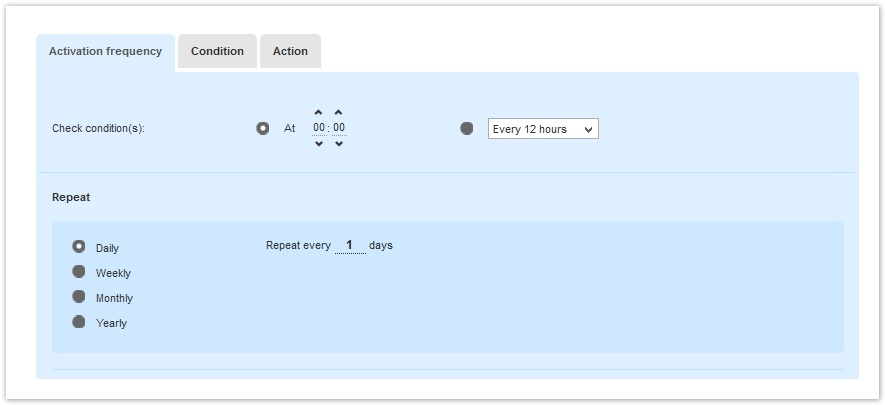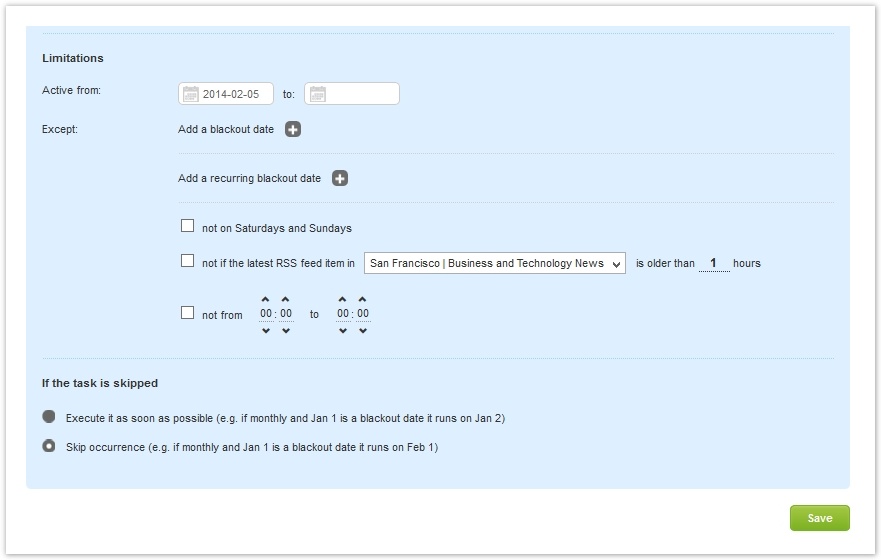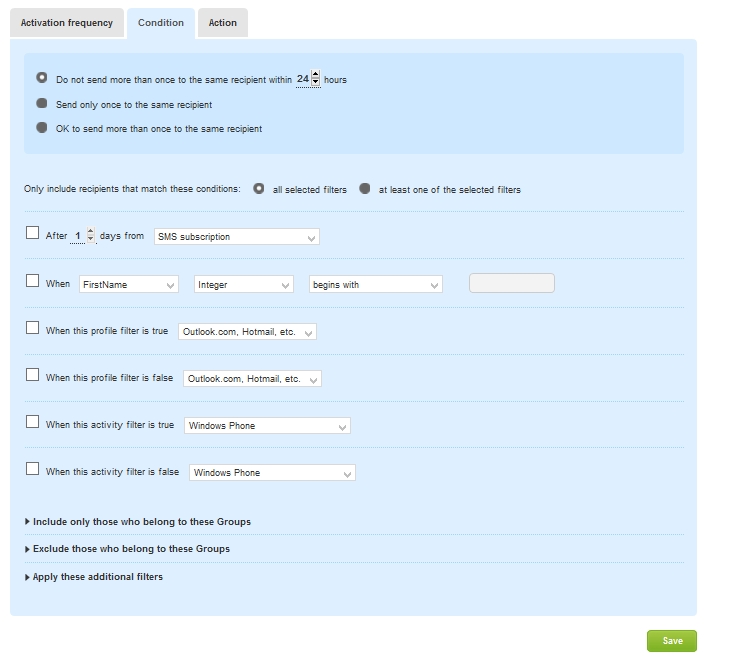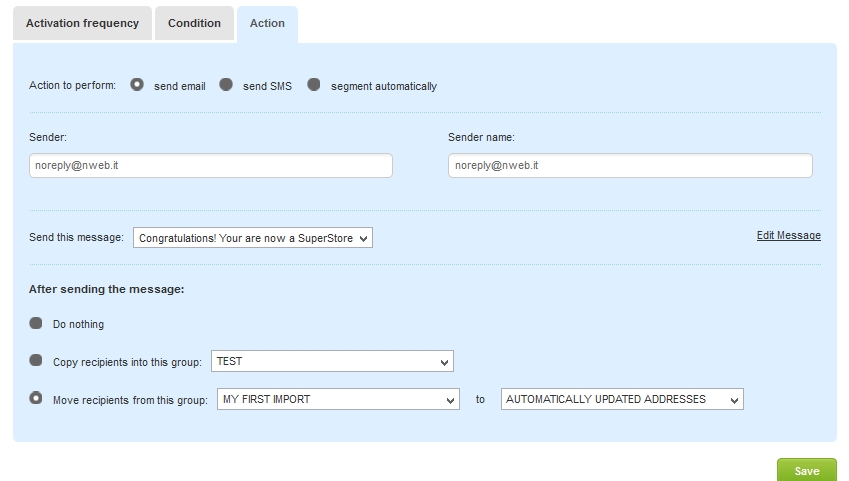To add a new Task, click on Automation > Tasks > New
Info
We suggest to work with automated messages in three steps:
- set a new automated message
- simulate the sending
- run the automated message
The task creation page is divided into 4 sections.
- General information, which is the top section of the page
- Activation Frequency
- Condition
- Action
General information
On the top area of the page, you can specify:
- Name: a short name for the task that you are creating.
- Description: a description for which it will be used. Both name and description are for internal use only. They are never shown to the recipient of a triggered message.
- Tags: associate one or more tags to the task. You can use tags defined for previous messages or create a new one by clicking on "Add new tag".
- State: whether the task is Enabled or Disabled. (e.g. you are just testing it).
- Use this time zone: you can specify a certain period of time in which an Enabled task will be run.
- Use this time zone...in the field: specify a different time zone you can use and pull it from a profile filter.
Activation Frequency
Next, specify the frequency with which the system will check whether the action specified later in the "action" tab should be performed.
Check conditions: at a specific time (e.g. at 0.00) or every 4, 8, or 12 hours
Repeat: let the platform repeat Check conditions daily, weekly, monthly or yearly.
What does "Frequency" mean?
With Limitations you can set the limitations to the Check condition and Repeat previously set:
- Active from: you can set your task so that it runs only within a certain period of time (e.g. from the 12th to the 25th December)
- Except: you can add a blackout date (e.g. December 25th where you don't want your recipient to get any messages) or a Recurring blackout date (e.g. you can prevent triggered messages from being sent during the weekend)
- If the task is skipped: if any of the limitations you set occur you can set when to execute the automation (e.g. if monthly and Jan 1st is a blackout date it runs on Jan 2nd)
Condition
In the Condition tab, you can set which users will receive the automatic sending according to different parameters.
In general:
- If the condition is simple (e.g. 7 days after the subscription), you can configure it directly using the options in the Condition tab
- If the condition is more complex (e.g. 7 days after subscription, and it is resident in San Francisco and it is a female), then you'll first have to create a filter
The options that you can configure in the Condition tab are:
- Whether
- Number of days of the occurrence of one of the most frequent events (e.g., subscription, joining a group, etc.).
- the latest activity the recipient has generated
- the latest profile update form has been submitted (for the current list or for any list)
- based on a Profile field (eg, date of registration, birthday, etc ...)
- based on the anagraphic data (true / false)
- based on activities (true / false)
You can also define whether the system should or shouldn't send the same message:
- Do not send more than once to the same recipient within 24 hours
- Send only once to the same recipient
- OK to send more than once to the same recipient
The bottom part of the page allows you to further restrict the applicability of the task.
You can:
- Include one or more groups.
- Exclude one or more groups.
This feature is useful when creating "waterfall" campaigns. For example:
- You may want to automatically send a promotional message to all customers with a certain profile (eg, women between 30 and 50 years old)
- Excluding those who belong to the promotion, it is automatically sent on the 15th of the month and the recipient will be copied in the group "Promotion sent on the 15th of the Month" (this option can be configured in the Action tab) when the action is run
- To prevent the promotion from being sent twice to the same recipient, that group is selected among the groups to be run in the Conditions tab
3. Finally, the function Apply these additional filters makes it possible to define the customers' target with more precision. It allows you to select other filters to apply when running an automatic sending. For example, if the automatic sending requires the use of two profile filters, you can apply the first filter at the top of the page and under When the profile filter is true and then select the second filter in the Apply these additional filters.
Action
Finally, you need to specify what happens if the Conditions that have been checked are all true. The options are:
- send email
- send SMS
- segment automatically
If the action is sending an email or text message, you can set the sender information and deliver that message to your recipients.
The area After sending the message allows you to automatically assign the recipient to a group after you send the message. This function is particularly useful in the construction of multi-message or "waterfall" campaigns.
If the After sending a message is set to Do nothing, you can configure the system to:
- Assign the recipients to a group (e.g. recent subscribers )
- Move the recipients from one group to another




